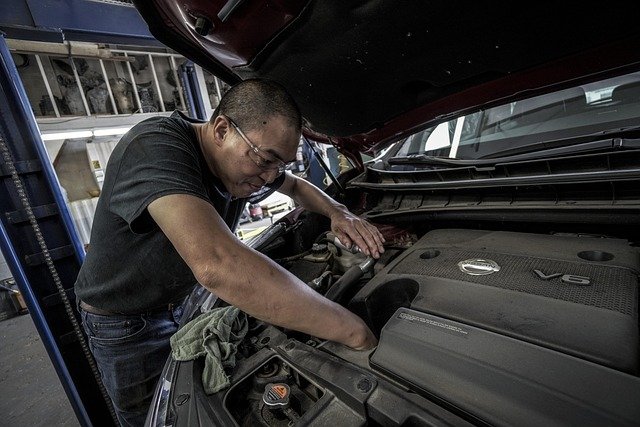Car Repair Services: What Every Vehicle Owner Should Know
Keep your car running smoothly with trusted repair services performed by certified technicians. From engine diagnostics and brake maintenance to air conditioning and transmission repair, every service is handled with precision, transparent pricing, and reliable parts to ensure safety and performance on the road.

Understanding Vehicle Warning Indicators and Performance Issues
Your vehicle communicates with you through various warning systems designed to alert you to potential problems before they become serious. Dashboard warning lights serve as your first line of defense against costly repairs. The check engine light, for instance, can indicate anything from a loose gas cap to serious engine problems. Oil pressure warnings, temperature gauges, and brake system alerts all require immediate attention.
Performance issues often manifest gradually, making them easy to overlook initially. Unusual vibrations, strange noises, reduced fuel efficiency, or changes in how your vehicle handles can all signal underlying problems. Grinding sounds when braking, steering wheel vibrations, or difficulty starting your engine are clear indicators that professional intervention is needed.
The Importance of Certified and Experienced Technicians with Diagnostic Tools
Modern automotive repair requires sophisticated diagnostic equipment and specialized training. Certified technicians possess the knowledge and tools necessary to accurately identify problems in today’s computerized vehicles. Advanced diagnostic scanners can read error codes from your vehicle’s computer systems, providing precise information about malfunctions that might not be apparent through visual inspection alone.
Experienced technicians understand the intricate relationships between different vehicle systems. They can identify how a problem in one area might affect other components, preventing minor issues from escalating into major repairs. Professional certification ensures technicians stay current with evolving automotive technology and repair techniques.
Comprehensive Engine, Brakes, Suspension, and Electrical System Inspections
Regular inspections of critical vehicle systems help maintain safety and reliability. Engine inspections involve checking fluid levels, belts, hoses, and filters while monitoring performance parameters. Brake system evaluations examine pads, rotors, fluid levels, and hydraulic components to ensure stopping power remains optimal.
Suspension system inspections focus on shock absorbers, struts, springs, and alignment components that affect ride quality and tire wear. Electrical system checks encompass battery condition, alternator function, starter operation, and the complex wiring networks that power modern vehicle features. These comprehensive inspections identify potential problems before they result in breakdowns or safety hazards.
Transparent Cost Estimates with Parts and Labor Details
Reputable repair facilities provide detailed estimates breaking down parts costs, labor charges, and any additional fees. This transparency allows you to understand exactly what work is being performed and why specific components need replacement or repair. Quality estimates include part numbers, labor time requirements, and clear explanations of the work involved.
Transparent pricing helps you make informed decisions about repairs and avoid unexpected charges. Many facilities offer written estimates that serve as contracts, protecting both you and the service provider. Understanding the breakdown of costs also helps you compare quotes from different repair shops when seeking the best value for your repair needs.
| Service Type | Estimated Cost Range | Typical Duration |
|---|---|---|
| Basic Oil Change | R300 - R600 | 30-60 minutes |
| Brake Pad Replacement | R800 - R2,500 | 2-4 hours |
| Engine Diagnostic | R400 - R800 | 1-2 hours |
| Suspension Repair | R1,200 - R4,000 | 3-6 hours |
| Electrical System Repair | R600 - R2,000 | 2-5 hours |
Prices, rates, or cost estimates mentioned in this article are based on the latest available information but may change over time. Independent research is advised before making financial decisions.
How to Schedule a Service Quote or Consultation
Scheduling automotive repair services has become more convenient with online booking systems and mobile apps offered by many repair facilities. Most reputable shops allow you to describe your vehicle’s symptoms and schedule appointments at times that work with your schedule. When contacting a repair facility, provide specific information about your vehicle’s make, model, year, and mileage along with detailed descriptions of any problems you’ve noticed.
Many facilities offer free initial consultations or diagnostic services, allowing you to understand the scope of needed repairs before committing to expensive work. Some shops provide shuttle services or loaner vehicles to minimize disruption to your daily routine while your vehicle is being repaired.
Building relationships with trusted local automotive repair facilities ensures you have reliable support when vehicle problems arise. Regular maintenance at the same facility allows technicians to become familiar with your vehicle’s history and identify patterns that might indicate developing issues. This ongoing relationship often results in better service and more accurate diagnoses when problems occur.
Proper automotive repair requires expertise, quality parts, and attention to detail. By understanding warning signs, working with qualified technicians, and maintaining open communication about repair needs and costs, you can keep your vehicle running safely and efficiently for years to come.




